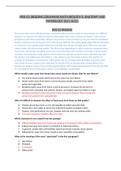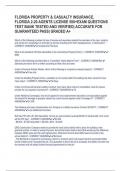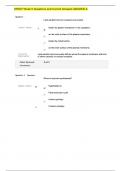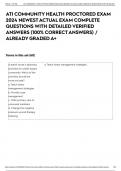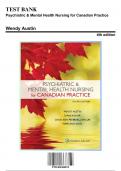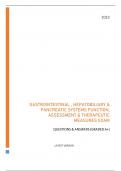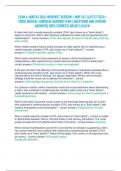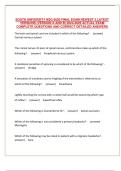Exam (elaborations)
Test bank for Wilkins clinical assessment in respiratory care 8th edition by Huber, All Chapters 1 to 21 complete Verified editon ISBN:9780323416351
Test bank for Wilkins clinical assessment in respiratory care 8th edition by Huber, All Chapters 1 to 21 complete Verified editon ISBN:9780323416351 Test bank and solution manual pdf Test bank and solution manual pdf free download Test bank and solution manual pdf download Test bank and solution ma...
[Show more]




